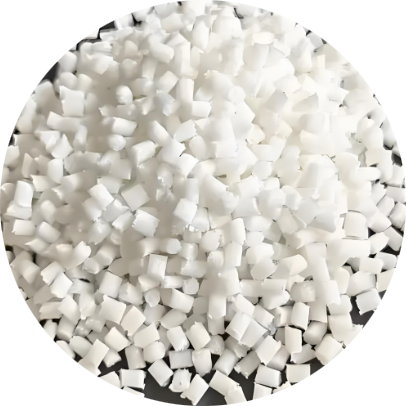Time to read: 6 min

Delrin, a versatile acetal polymer known for its exceptional structural integrity and durability, is extensively used in various manufacturing processes, including CNC machining, injection molding, and 3D printing. This guide will help you navigate through the different grades of Delrin, their properties, and applications, making it easier to select the right material for your rapid prototyping needs.
Introduction to Delrin Plastic
Delrin, marketed under the brand name of an acetal polymer, is highly regarded for its machinability, strength, and dimensional stability. It is commonly referred to as POM (Polyoxymethylene) and is suitable for a wide range of applications across different industries.
Properties of Delrin Ideal for Rapid Prototyping
Delrin's properties make it an excellent choice for rapid prototyping, where fast creation of parts with great stability and machinability is required.
- Electrical Characteristics: Delrin's excellent insulating properties and ability to withstand electrical stress make it ideal for electrical components and high-voltage insulators.
- Mechanical Strength: With a tensile strength of 7,000 to 9,000 PSI, Delrin offers a high strength-to-weight ratio, making it suitable for lightweight parts that require high stress resistance.
- Fatigue Resistance: Delrin's exceptional resistance to fatigue failure across a wide temperature range makes it ideal for parts subjected to repeated impact and stress.
- Impact Resistance: Delrin can endure sudden impacts without failing, thanks to its high toughness compared to other polymers.
- Dimensional Stability: Delrin's ability to retain its shape during machining makes it easier to work with than other materials.
- Frictional Properties: Delrin's natural slipperiness eliminates the need for lubrication in moving machine parts, reducing the risk of contamination in sensitive applications.
Cons of Using Delrin Plastic in Rapid Prototyping
While Delrin offers numerous advantages, it also has some limitations:
- Flammability: Delrin continues to burn until the supply of oxygen is cut off, requiring the use of Class A fire extinguishers in case of fire.
- Heat Sensitivity: Delrin parts are not suitable for environments with extreme heat generation, as they can deform or melt at high temperatures.
- Bonding Difficulty: Delrin's resistance to chemicals makes it challenging to bond parts using adhesives, requiring surface roughening before adhesive application.
- Stiffness: Delrin is less stiff than metals, necessitating thicker parts or regular support intervals to prevent deflection in large-span applications.
Different Grades of Delrin for Rapid Prototyping
Delrin is available in various grades, each with specific mechanical properties suitable for different purposes:
- Delrin 150: Offers better mechanical properties, strength, rigidity, and resistance to warpage at high temperatures.
- Delrin AF 100 (13% PTFE Filled): Exceptionally durable and resistant to wear, with improved lubricity due to the addition of PTFE.
- Delrin (30% Glass Filled): Provides exceptional impact resistance and resistance to creep and deformation, suitable for parts subjected to high constant stress.
- Delrin AF DE588: Contains 20% PTFE fibers, offering exceptional rigidity, strength, and durability for use in high-stress environments.
Applications of Delrin in Rapid Prototyping
Delrin's versatility makes it suitable for a wide range of industries, including automotive, industrial equipment, consumer appliances, and electrical appliances.
How to Choose the Right Delrin Material
Selecting the appropriate grade of Delrin depends on factors such as moisture absorbance, wear characteristics, the rapid prototyping process, and the intended use of the part.
FAQs
- Can Delrin parts be glued? Delrin parts can be difficult to glue due to their chemical resistance and natural lubricity.
- Is Delrin safe for food production? Delrin is FDA-certified as a food-grade plastic, safe for use in food production appliances and packaging.
Conclusion
Delrin plastic's unique properties make it suitable for various applications across different industries. Its strength, lightweight, and availability in different grades allow it to be a substitute for metals in many applications. Understanding the properties of different Delrin grades will help you make an informed decision for your prototyping needs.
UnoFactory's Expertise in Machining Delrin Plastic
At UnoFactory, we specialize in machining Delrin and other materials, offering expert advice on selecting the right grade for your specific application. We also provide a wide range of machining services to bring your designs to life. Contact UnoFactory today for a quote and let our expertise guide you through the prototyping process.




